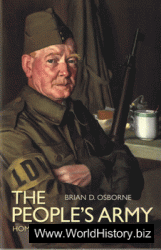Actor and playwright
Flourished: c. 449-c. 424 b. c.e.; Athens, Greece Category: Theater and drama
Life Crates (KRAYT-eez) of Athens acted and wrote comedies in Athens in the middle of the fifth century b. c.e., but nothing is known of his life outside his career. He acted in the plays of Cratinus before producing his own plays. As a playwright, he won in the dramatic competition of the Great Dionysia at least three times. The titles of seven of his plays are known: Geitones (Neighbors), Heroes, Lamia (Goblin), Paidiai (Games), Theria (Animals), Samioi (Samians), and Tolmai (Courage). Exact dates for the plays are not known; all were translated into English in 1931. None of his plays survives complete. About sixty fragments are known, none longer than ten lines. Animals has the most interesting remains. Fragments refer to a utopia in which furniture and utensils work by themselves and to talking animals who urge humans not to eat meat.
Influence In De poetica (c. 335-323 b. c.e.; Poetics, 1705), Aristotle says Crates was the first Athenian to abandon personal abuse in his comedies and instead create plots and stories of universal interest. Crates is also said to have introduced drunken characters to the stage. In HippTs (424 b. c.e.; The Knights, 1812), Aristophanes refers to Crates approvingly as a predecessor.
Further Reading
Kassel, R., and C. Austin. Poetae Comici Graeci. Vol. 4. Berlin: Walter de Gruyter, 1983.
Norwood, Gilbert. Greek Comedy. London: Methuen, 1931.
Sommerstein, Alan H. Greek Drama and Dramatists. New York: Rout-ledge, 2002.
Wilfred E. Major
See also: Aristophanes; Aristotle; Cratinus; Literature; Performing Arts; Sports and Entertainment.




 World History
World History









